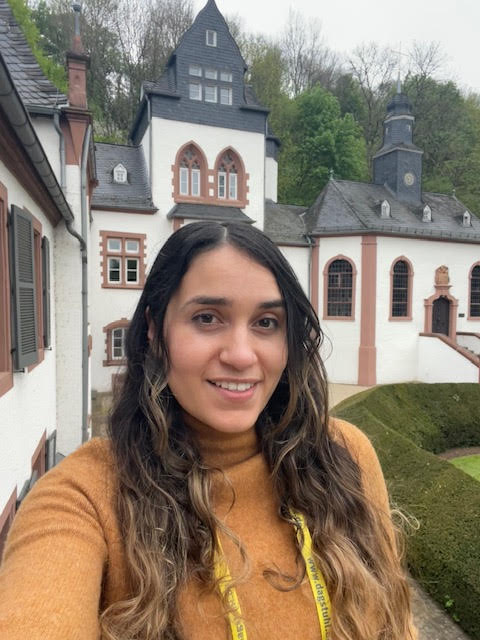Growing a network and improving academic skills as an early career researcher
Posted on Thursday 6 June 2024

One of our research associates Gricel Vazquez attended the Dagstuhl Seminar: Resilience and Antifragility of Autonomous Systems (RAAS) held at the end of April in Germany.
Discussions centred around how resilient autonomous systems continue to provide the required functionality despite the uncertainty, change, faults, failure, adversity, and other (anticipated and unforeseen) disruptions within their operating environments.
Additionally, antifragile autonomous systems benefit from exposure to uncertainty and disruption by learning from encounters with such difficulties. This means they can handle future occurrences faster, more efficiently, with lower user impact.
The seminar brought together international research communities working in these two closely related research areas to identify synergies across their disciplines and research programmes, and to agree on a common basis for joint future research. Key to this was sharing and understanding each other’s methods and challenges related to RAAS.
The seminar was organised by Chair of Systems Safety Professor Simon Burton and Professor Radu Calinescu, both from the Centre for Assuring Autonomy, and Professor Raffaela Mirandola from the Karlsruher Institut für Technologie.
Gricel, who is about to complete her PhD, found the seminar valuable in multiple ways:
“As an ECR, it reminded me about what I have read in books about how new research fields emerge. One that sprung to mind was the Dartmouth Summer Research workshop on Artificial Intelligence in 1956, widely considered to be the founding event of artificial intelligence.
“I learned about the concepts of resilience, robustness, safety and antifragility, and some of the discrepancies that exist between research groups – which the leaders of the seminar made sure they understood through maths. Moreover, indirectly, I learned (and continue to learn) how to debate, how a seminar of this magnitude is organised (congratulations to the organisers!) and how new connections can form new research collaborations.
“We even managed to fit in a visit to the historical town of Trier and its famous Roman Porta Nigra, a vineyard and the ruins of the Dagstuhl castle on top of a little hill behind the Centre building.
“During this week it was invaluable for me to learn from the top researchers in resilient autonomous systems and spend a week debating and learning about the formalisation of this new exciting area of antifragility.”
If you'd like to talk through opportunities and projects around multi robot tasking and allocation and planning, contact Research Associate Gricel Vazquez using this form.
